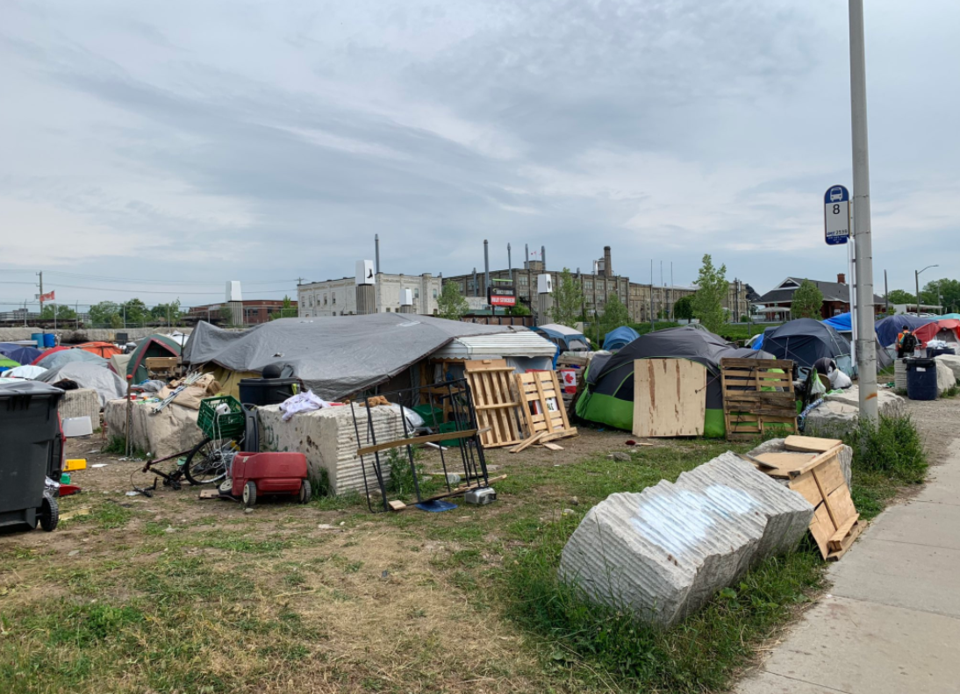No recent issue has plagued the region like the rise in people experiencing homelessness.
From encampments at 55 Kerr St. in Cambridge spilling into the parking lot of 150 Main St., to the issues the city of Kitchener has experienced at Victoria Park and Victoria and Weber streets, homelessness is becoming an out-of-control crisis in the region and across the province.
Director of housing services for the Region of Waterloo, Ryan Pettipiere, admits the number of unhoused people has continued to grow.
“Overall, what we've seen as far as the number of individuals experiencing homelessness region wide has been unprecedented,” Pettipiere said.
“We haven’t been keeping up with the pace at which it’s happening. Longer term we want to put resources into solving the issue, but short term we need to create as many spaces as we can for these people to live.
"Safety of those individuals is a concern.”
In August, regional council approved several interim housing solutions. The region aims to create 125 new beds for transitional housing, utilize 100 new units of scattered site supportive housing, create one additional emergency shelter site and a hybrid site with both indoor and outdoor options.
The spot for the 125 new beds has not yet been established, with the region hoping to find a partner to find space.
“We're open to wherever space may be located,” Pettipiere said.
“We launched an expression of interest for a call to the public. If anyone has a space that will help us and is interested in a partnership, we’d love to know.”
The 100 new units of scattered-site supportive housing already exist in the private market, Pettipiere says. The region will continue to work with organizations such as Lutherwood and private landlords to ensure spaces are available.
“As for the emergency shelter; it’s in the works,” Pettipiere said.
“It was one of the first priorities we took on. It’s a new space that will be an addition to the current spaces we have in the current system. We hope to have it up and running before the winter months. It’s imminent, that’s all I can say.”
Arguably one of the more interesting solutions for the community is the temporary hybrid model that could house up to 50 people. This space would give its residents the option of outdoor living, combined with the safety and security that is needed during the harsh winter months.
“We're reviewing a long list of regionally-owned properties,” Pettipiere said.
“Through our lived experience and consultation, a lot of people want something along these lines.”
Pettipiere points out that much of the responsibility to find solutions has fallen on municipal government. A model that isn’t sustainable long term.
“It’s going to take serious community coordination to make even the short term options happen but we also need help from the federal and provincial governments to make this possible,” he said.
“We need the assistance from the high levels of government particularly with mental health and addiction services.”
From a city perspective, in December of 2021 Cambridge councillors endorsed a partnership with the School of Architecture at the University of Waterloo. The joint project was to study how tiny homes can be included in an affordable housing strategy for the city.
When approached with the subject of tiny homes, Pettipiere says the idea can take on many forms.
“The tiny homes conversation comes up regularly in our work but that can take on various iterations,” he said.
“The closest example we have locally is the operations run by A Better Tent City in Kitchener.”
In the long run, the region will be looking to create a master plan to address homelessness.
“The fifth part of what was approved was to undertake a homelessness master plan in the later months of this year and next year to get at solving the issue, not just managing it,” Pettipiere said.
“We need to increase options and invest in this problem.”



